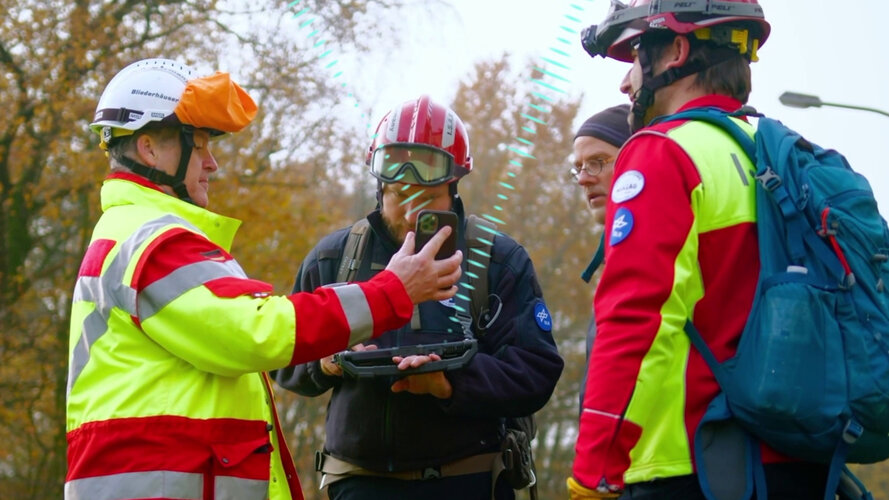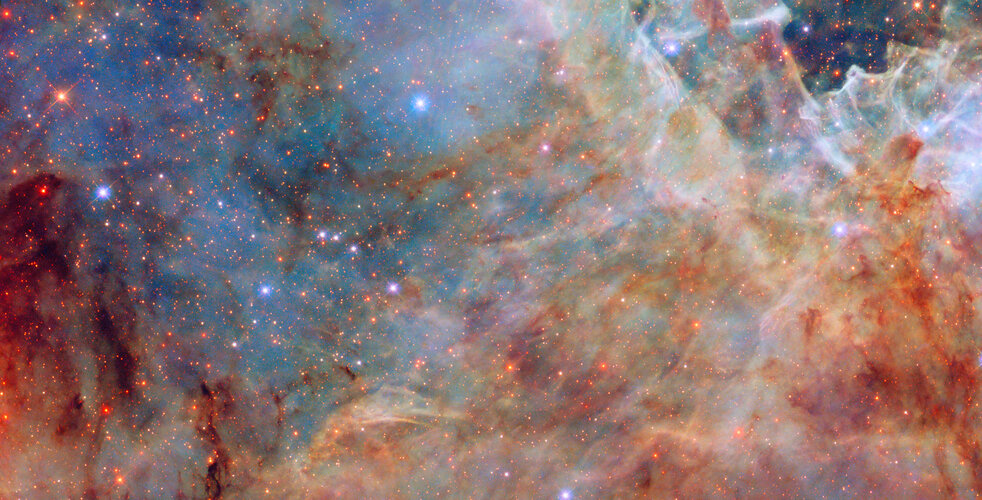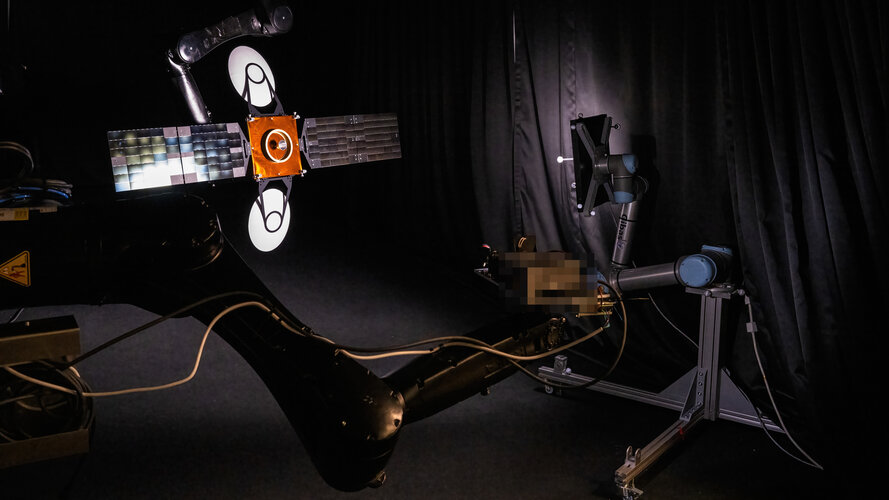NASA invests in studies for sustainable Lunar exploration
Sunday, 26 January 2025 09:05 NASA has awarded a series of new study contracts aimed at advancing capabilities to support life and work on the Moon. These initiatives are part of the Artemis program, the agency's strategy for deep space exploration, and include contracts with nine U.S. companies across seven states.
The Next Space Technologies for Exploration Partnerships Appendix R contracts are focused on addressing
NASA has awarded a series of new study contracts aimed at advancing capabilities to support life and work on the Moon. These initiatives are part of the Artemis program, the agency's strategy for deep space exploration, and include contracts with nine U.S. companies across seven states.
The Next Space Technologies for Exploration Partnerships Appendix R contracts are focused on addressing Einstein Probe identifies ancient cosmic event
Sunday, 26 January 2025 09:05 Einstein Probe has unveiled a fresh perspective on the distant X-ray Universe, enabling astronomers to investigate the origins of the farthest cosmic explosions. Just three months after its launch, the spacecraft detected an enigmatic X-ray burst that could challenge our understanding of gamma-ray bursts (GRBs).
On March 15, 2024, the spacecraft's Wide-field X-ray Telescope (WXT) captured
Einstein Probe has unveiled a fresh perspective on the distant X-ray Universe, enabling astronomers to investigate the origins of the farthest cosmic explosions. Just three months after its launch, the spacecraft detected an enigmatic X-ray burst that could challenge our understanding of gamma-ray bursts (GRBs).
On March 15, 2024, the spacecraft's Wide-field X-ray Telescope (WXT) captured National Astronomy Week illuminates February with rare planet parade
Sunday, 26 January 2025 09:05 A rare celestial display featuring Venus, Mars, Jupiter, and Saturn will dazzle stargazers during National Astronomy Week 2025, which runs from February 1-9. Complementing the planet parade, the Moon will pass through its phases from crescent to nearly full, creating a spectacular backdrop.
More than 250 activities, including stargazing events, planetarium shows, and talks, are planned acr
A rare celestial display featuring Venus, Mars, Jupiter, and Saturn will dazzle stargazers during National Astronomy Week 2025, which runs from February 1-9. Complementing the planet parade, the Moon will pass through its phases from crescent to nearly full, creating a spectacular backdrop.
More than 250 activities, including stargazing events, planetarium shows, and talks, are planned acr ESA’s Civil Security from Space
Friday, 24 January 2025 17:00 Video:
00:04:46
Video:
00:04:46
ESA’s Civil Security from Space programme aims to save lives and livelihoods by reinforcing terrestrial systems that can become compromised by natural disasters or malicious actions.
It aims to deliver a faster response than is presently possible by ensuring that real-time data is available anywhere through state-of-the-art space-enabled systems, making use of secure networks and reliable cloud computing to ensure the information is resilient and reliable. The programme also aims to enable governments and emergency services to act on an unfolding situation by using smart data gathering and intelligent processing to create a holistic awareness of the situation.
The sounds of BepiColombo's sixth flight past Mercury
Friday, 24 January 2025 14:00 Video:
00:01:20
Video:
00:01:20
Listen to the ESA/JAXA BepiColombo spacecraft as it flew past Mercury on 8 January 2025. This sixth and final flyby used the little planet's gravity to steer the spacecraft on course for entering orbit around Mercury in 2026.
What you can hear in the sonification soundtrack of this video are real spacecraft vibrations measured by the Italian Spring Accelerometer (ISA) instrument. The accelerometer data have been shifted in frequency to make them audible to human ears – one hour of measurements have been sped up to one minute of sound.
BepiColombo is always shaking ever so
Week in images: 20-24 January 2025
Friday, 24 January 2025 12:56
Week in images: 20-24 January 2025
Discover our week through the lens
Satellite ready for close-up
Friday, 24 January 2025 12:25 Image:
Satellite ready for close-up
Image:
Satellite ready for close-up Study suggests small asteroid 2024 PT5 likely originated from the Moon
Friday, 24 January 2025 10:43 The near-Earth object 2024 PT5, a small asteroid discovered in 2024, has been identified as likely originating from the Moon. Scientists believe it was ejected into space thousands of years ago following a significant impact event, offering valuable opportunities to study both asteroid dynamics and lunar geology.
The asteroid, approximately 33 feet (10 meters) wide, was first observed on A
The near-Earth object 2024 PT5, a small asteroid discovered in 2024, has been identified as likely originating from the Moon. Scientists believe it was ejected into space thousands of years ago following a significant impact event, offering valuable opportunities to study both asteroid dynamics and lunar geology.
The asteroid, approximately 33 feet (10 meters) wide, was first observed on A Major component of NASA's NEO Surveyor enters deep space testing
Friday, 24 January 2025 10:43 A critical component of NASA's Near-Earth Object (NEO) Surveyor mission has begun a rigorous testing phase at the Johnson Space Center in Houston. Known as the instrument enclosure, the structure spans 12 feet (3.7 meters) in length and is designed to safeguard the spacecraft's infrared telescope while efficiently dissipating heat during its operations in space.
Built by NASA's Jet Propuls
A critical component of NASA's Near-Earth Object (NEO) Surveyor mission has begun a rigorous testing phase at the Johnson Space Center in Houston. Known as the instrument enclosure, the structure spans 12 feet (3.7 meters) in length and is designed to safeguard the spacecraft's infrared telescope while efficiently dissipating heat during its operations in space.
Built by NASA's Jet Propuls Now That's Ingenuity: First Aircraft Measurement of Winds on Another Planet
Friday, 24 January 2025 10:43 Researchers have used an aircraft to measure the wind speed on Mars, marking the first time this method has been used on another planet. This groundbreaking measurement was made possible by the Ingenuity helicopter, which was active for nearly three years and spent, cumulatively, more than two hours in flight on the Red Planet.
In February 2021, Mars got two new inhabitants: the Perseveran
Researchers have used an aircraft to measure the wind speed on Mars, marking the first time this method has been used on another planet. This groundbreaking measurement was made possible by the Ingenuity helicopter, which was active for nearly three years and spent, cumulatively, more than two hours in flight on the Red Planet.
In February 2021, Mars got two new inhabitants: the Perseveran SwRI-led PUNCH spacecraft reach final milestone before launch
Friday, 24 January 2025 10:43 Four compact spacecraft, designed and constructed by Southwest Research Institute (SwRI), have arrived at Vandenberg Space Force Base in California for final preparations ahead of their upcoming launch. NASA's Polarimeter to Unify the Corona and Heliosphere (PUNCH) mission will share its ride to orbit with the Spectro-Photometer for the History of the Universe, Epoch of Reionization, and Ices Ex
Four compact spacecraft, designed and constructed by Southwest Research Institute (SwRI), have arrived at Vandenberg Space Force Base in California for final preparations ahead of their upcoming launch. NASA's Polarimeter to Unify the Corona and Heliosphere (PUNCH) mission will share its ride to orbit with the Spectro-Photometer for the History of the Universe, Epoch of Reionization, and Ices Ex Three rockets will ignite Poker Flat's 2025 launch season
Friday, 24 January 2025 10:43 Three NASA sounding rockets are set to launch from Poker Flat Research Range as early as Tuesday to learn more about three types of aurora - black, flickering and fast-pulsating.
The launch window is Jan. 21 through Feb. 5.
The University of Alaska Fairbanks Geophysical Institute owns Poker Flat, located at Mile 30 Steese Highway, and operates it under a contract with NASA's Wallops
Three NASA sounding rockets are set to launch from Poker Flat Research Range as early as Tuesday to learn more about three types of aurora - black, flickering and fast-pulsating.
The launch window is Jan. 21 through Feb. 5.
The University of Alaska Fairbanks Geophysical Institute owns Poker Flat, located at Mile 30 Steese Highway, and operates it under a contract with NASA's Wallops Advanced modeling improves Gateway Lunar dust mitigation
Friday, 24 January 2025 10:43 NASA's Artemis program is spearheading efforts to return humans to the Moon, establish a sustainable lunar presence, and pave the way for crewed missions to Mars. As part of this initiative, engineers are tackling the challenge of lunar dust, a substance known for its sharp, abrasive particles that adhere to spacesuits and disrupt equipment functionality.
Lunar dust emerged as a significan
NASA's Artemis program is spearheading efforts to return humans to the Moon, establish a sustainable lunar presence, and pave the way for crewed missions to Mars. As part of this initiative, engineers are tackling the challenge of lunar dust, a substance known for its sharp, abrasive particles that adhere to spacesuits and disrupt equipment functionality.
Lunar dust emerged as a significan Bright Comet's Tail Dazzles in Images from ESA/NASA SOHO Spacecraft
Friday, 24 January 2025 10:43 From Jan. 11 to 15, 2025, a bright comet surged through images from the ESA (European Space Agency) and NASA SOHO (Solar and Heliospheric Observatory) spacecraft. Called C/2024 G3 (ATLAS), the comet made its closest pass to the Sun, or perihelion, on Jan. 13, soaring a mere 8 million miles (or 9% of the average Earth-Sun distance) from our star.
These views of comet ATLAS were captured by
From Jan. 11 to 15, 2025, a bright comet surged through images from the ESA (European Space Agency) and NASA SOHO (Solar and Heliospheric Observatory) spacecraft. Called C/2024 G3 (ATLAS), the comet made its closest pass to the Sun, or perihelion, on Jan. 13, soaring a mere 8 million miles (or 9% of the average Earth-Sun distance) from our star.
These views of comet ATLAS were captured by Establishing a permanent lunar presence will depend on ingenuity and the moon's own resources
Friday, 24 January 2025 10:43 NASA's Artemis program goal of establishing a human presence on the Earth's moon is closer than ever to becoming a reality within the next few decades. But today's starry-eyed dreamers are reckoning with the gritty reality of building a permanent base on an airless, dusty, radiation-blasted rock thousands of miles from home. How hard can it be?
The answer, obviously, is very. But with a lo
NASA's Artemis program goal of establishing a human presence on the Earth's moon is closer than ever to becoming a reality within the next few decades. But today's starry-eyed dreamers are reckoning with the gritty reality of building a permanent base on an airless, dusty, radiation-blasted rock thousands of miles from home. How hard can it be?
The answer, obviously, is very. But with a lo 
